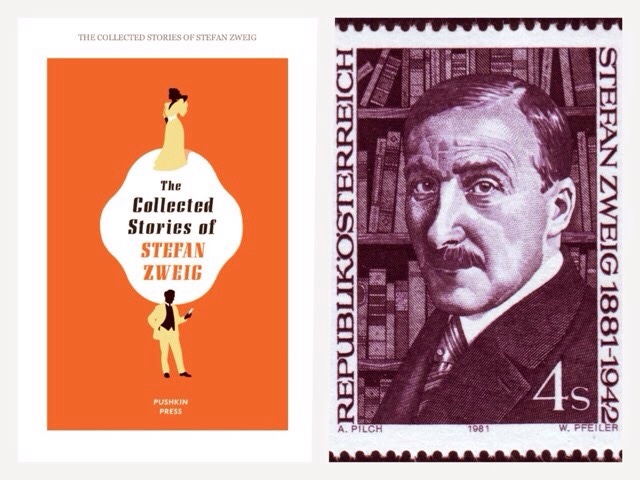I am estatic to once again be able to Participate in German Literature Month, elegantly and lovingly hosted by Lizzi's Literary Live and Beauty is a Sleeping Cat. This is my fourth year as a participant. On the host blogs you will find the particularities of the event but the basic idea is to read literature first written in German (translated or not) and share your thoughts. I began accumulating works for the event soon after the event ended last year and I began reading for it in mid-September.
Works Read for G L V So Far
1. Every Man Dies Alone by Hans Fallada. A brilliant recreation of life in Nazi Germany.
2. Ostend, Stefan Zweig, Joseph Roth and the Summer Before the End by Volker Weidermann. A fascinating social history
3. Buddenbrook Ths Decline of a Family by Thomas Mann. Must reading
Stefan Zweig was once one of the best selling writers in the world. I have posted extensively on his work and hope to read several of his short stories this month.
My favorite of his short stories so far is "Mendel the Bibliophile" which I posted on during GL IV last year. If you like short stories your best value is in the Pushkin Press's The Collected Short Stories of Stefan Zweig, translated by the highly regarded Althea Bell.
"The Governess" is a very emotion based story, a cynic might say it was "smaltzy", not meaning to embarrass Zweig with a bit of Yiddish. It is not first rate Zweig but certainly worth your time.
The central characters are two young girls from affluent family. They have noticed that their governess has been acting differently lately. The older one concludes she is in love with cousin Otto, living with them in his final year of college. The girls are confused why the governess sees sad, after all is not love supposed to make you happy? Then they see Ofto go into the room of the governess and the older one listens to their conversation through the door. She hears the governess say "what about our baby". Now the girls are very confused, in their world only married women can have babies so how is this possible.
I will leave the outcome of the story untold. It is a kind of coming of age story in which the girls are forced to get a true early look at the ugliness of adulthood and see a side to their mother that shocks them.
I hope others will share their Zweig favorites with us. Some critics and historians have castigated Zweig for not really focusing on the fate of European Jews. I understand why one might say this and his extreme wealth did isolate him in many ways but I think it is a shallow judgement.
Mel ü







3 comments:
Another interesting review! Personally Zweig did a lot to help authors and also other people to survive and leave Europe when they were endangered, so it is a bit unfair of some people that say he didn't care about the fate of the Jews.
I initially intended to read the whole short story collection for GLM V but now may just pick out one or two stories. I hope to read the whole book soon though.
Jonathan. I also,had this idea last year but I decided I wanted to,read over a longer period.
Mytwostotinki. Yes he for sure did help,other writers.
Post a Comment